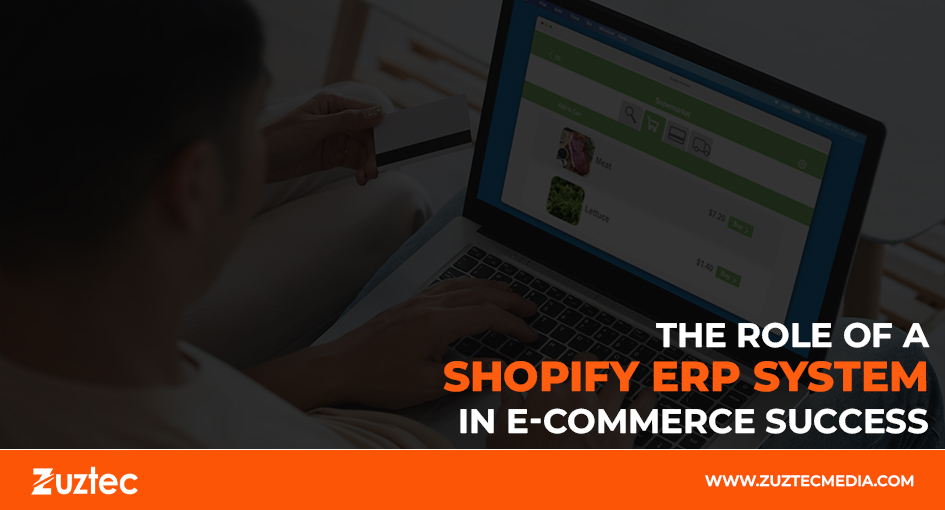
The Role of a Shopify ERP System in E-Commerce Success
In the rapidly evolving world of e-commerce, businesses face the constant challenge of managing multiple operations efficiently while delivering exceptional customer experiences. The digital marketplace is more competitive than ever, requiring businesses to adapt quickly to changing consumer preferences and market trends. As online retail becomes increasingly complex, integrating various systems for inventory management, order fulfillment, and customer relationship management has become essential for maintaining a competitive edge. This is where a Shopify ERP system plays a crucial role in streamlining operations and providing a unified platform for managing diverse business functions.
By consolidating critical processes, a Shopify enterprise resource planning solution helps e-commerce businesses enhance productivity, reduce costs, and drive growth. The integration of an ERP (Enterprise Resource Planning) system with Shopify can transform how businesses operate by automating repetitive tasks and offering valuable insights through data analysis. This means that everything from managing inventory levels to forecasting demand and processing orders can be handled seamlessly and efficiently. With a Shopify enterprise resource planning solution, companies can respond quickly to customer needs, optimize their supply chains, and enhance overall operational efficiency. This article will explore the significant role of a Shopify enterprise resource planning solution in achieving e-commerce success, highlighting its key features, benefits, and how it can be effectively implemented for long-term growth.
Understanding Shopify ERP Systems
A Shopify ERP system is designed to integrate with Shopify’s ecommerce platform, providing businesses with a comprehensive solution to manage their resources more effectively. Unlike standalone systems, an ERP system connects various business functions—such as finance, inventory, sales, and human resources—into one unified system. This integration enables businesses to streamline processes, improve collaboration, and ensure that all departments work with the same data, reducing the chances of errors and miscommunication.
One of the primary advantages of a Shopify enterprise resource planning solution is its ability to provide real-time visibility into operations. With a centralized database, business owners can monitor inventory levels, track order statuses, and analyze customer behavior in real time. This level of visibility allows businesses to make informed decisions quickly and adapt to changing market conditions, which is vital in the fast-paced e-commerce environment.
Key Features of a Shopify ERP System
1. Inventory Management
Effective inventory management is crucial for e-commerce success. A Shopify enterprise resource planning solution allows businesses to track inventory levels across multiple sales channels, ensuring that stock is always available when customers need it. It can automatically update inventory levels as orders are placed and fulfilled, reducing the risk of overselling or stockouts. Additionally, the system can provide insights into inventory turnover rates, helping businesses optimize their stock levels.
2. Order Fulfillment
A Shopify enterprise resource planning solution streamlines the order fulfillment process by automating key tasks such as order processing, shipping label generation, and tracking updates. With these automation features, businesses can reduce order processing times, enhance accuracy, and improve customer satisfaction. Customers appreciate timely updates regarding their orders, and an ERP system ensures that businesses can deliver on these expectations efficiently.
3. Data Analysis and Reporting
Data is a powerful asset for e-commerce businesses. A Shopify enterprise resource planning solution provides robust reporting and analytics tools that help businesses gain insights into sales performance, customer behavior, and operational efficiency. By analyzing data, businesses can identify trends, forecast demand, and make strategic decisions that drive growth. For instance, understanding peak sales periods can help businesses optimize their marketing strategies and inventory levels.
4. Customer Relationship Management (CRM)
Building and maintaining strong customer relationships is vital for e-commerce success. A Shopify ERP system often includes CRM functionalities that allow businesses to manage customer interactions, track preferences, and analyze purchasing behavior. This information can be used to create personalized marketing campaigns, improve customer support, and foster brand loyalty. By understanding their customers better, businesses can enhance their overall customer experience.
5. Financial Management
Managing finances effectively is essential for sustaining business growth. A Shopify enterprise resource planning solution can integrate with financial management tools to provide accurate financial reporting, invoicing, and expense tracking. By automating these processes, businesses can reduce administrative burdens and ensure that their financial records are up to date. This level of financial transparency is critical for making informed decisions regarding budgeting and investments.
Benefits of Implementing a Shopify ERP System
1. Increased Efficiency
By automating manual tasks and providing a centralized platform for managing operations, a Shopify enterprise resource planning solution significantly increases efficiency. This allows employees to focus on higher-value activities, such as customer engagement and strategy development, rather than spending time on repetitive administrative tasks.
2. Cost Reduction
Streamlining operations and reducing errors through automation can lead to substantial cost savings. With better inventory management and order fulfillment processes, businesses can minimize waste and reduce shipping costs. Additionally, improved financial management can help businesses avoid costly mistakes and ensure profitability.
3. Scalability
As e-commerce businesses grow, their operational needs change. A Shopify enterprise resource planning solution provides the scalability required to adapt to these changes. Whether expanding into new markets or launching new product lines, an ERP system can accommodate growth without sacrificing efficiency or performance.
4. Enhanced Customer Experience
With improved inventory management, faster order fulfillment, and personalized customer interactions, businesses can enhance the overall customer experience. Satisfied customers are more likely to return and recommend the brand to others, ultimately driving revenue growth.
To sum up, In today’s competitive e-commerce landscape, the integration of a Shopify ERP system is no longer just a luxury; it is a necessity for businesses looking to succeed. By streamlining operations, enhancing inventory management, and providing valuable data insights, an ERP system can fundamentally transform how businesses operate. The benefits of improved efficiency, cost reduction, scalability, and enhanced customer experience are invaluable in driving growth and maintaining a competitive edge. As e-commerce continues to evolve, adopting a Shopify enterprise resource planning solution can position businesses for long-term success in a dynamic market.

